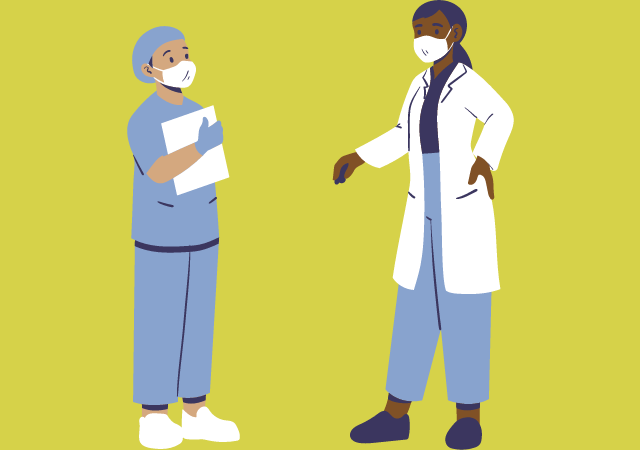How to Become a Nurse Without Formal Qualifications
Introduction
Nursing is a noble and rewarding profession, but the conventional path to becoming a nurse through formal qualifications isn’t the only way in. For those who aspire to join the ranks of healthcare heroes but lack the traditional educational prerequisites, there are alternative routes to achieve this dream. Whether you didn’t have the opportunity to pursue a formal nursing education or are embarking on a career change, this guide will show you that where there’s a will, there’s a way.
In this article, we will explore a roadmap for aspiring nurses without formal qualifications. From self-assessment and foundational skill development to various educational options and networking strategies, we’ll navigate the unconventional but entirely feasible journey to becoming a competent and compassionate healthcare professional. While the path may be less traveled, the destination remains the same: a fulfilling and impactful career as a nurse.
-
1. Understanding the Role of a Nurse

Before embarking on this journey, it’s essential to have a clear understanding of what a nurse’s role entails. Nurses are not just healthcare providers; they are advocates, caregivers, and pillars of support for patients and their families. They administer medications, provide treatments, and offer emotional and psychological support to those in need. Nurses must possess qualities such as empathy, compassion, and resilience, in addition to their technical skills.
-
2. Self-Assessment and Motivation
Why do you want to become a nurse? What motivates you to pursue this career path? Self-assessment is crucial to ensure that you are genuinely passionate about nursing. Reflect on your motivations, strengths, and weaknesses. Identify the qualities and skills you already possess, such as empathy, communication, and problem-solving abilities, which are invaluable in nursing.
-
3. Develop Essential Skills

While formal qualifications are essential, nursing is also about soft skills that can be developed over time. Focus on enhancing the following key skills:
a. Communication Skills:
- Effective communication is vital in nursing to understand patients’ needs and provide them with the best care possible. Practice active listening and clear, empathetic communication.
b. Critical Thinking:
- Nursing often involves making quick decisions in high-pressure situations. Work on your critical thinking skills to assess situations and make the best choices for patient care.
c. Empathy:
- Empathy is the ability to understand and share the feelings of others. It’s a cornerstone of nursing. Cultivate empathy to connect with patients on a deeper level.
d. Time Management:
- Nurses have demanding schedules. Learn to prioritize tasks, manage your time efficiently, and adapt to unforeseen circumstances.
-
4. Gain Healthcare Experience

To become a nurse without formal qualifications, it’s crucial to gain hands-on experience in the healthcare field. This not only enhances your skills but also provides valuable exposure to the healthcare environment. Here are two primary ways to gain healthcare experience:
a. Volunteer Work:
- Many hospitals and healthcare facilities offer volunteer opportunities. This is an excellent way to get a feel for the healthcare setting and interact with patients and medical professionals.
b. Entry-Level Healthcare Jobs:
- Consider working in entry-level healthcare positions like a nursing assistant or medical assistant. These roles provide valuable experience and a chance to work alongside nurses.
-
5. Explore Different Education Options
While formal nursing qualifications typically involve a structured educational program, there are alternative paths that can lead you to a nursing career:
a. Certificate Programs:
- Certified Nursing Assistant (CNA):
- CNAs provide direct patient care and work under the supervision of registered nurses (RNs). CNA programs are relatively short and provide essential nursing skills.
- Licensed Practical Nurse (LPN):
- LPNs have a more advanced role than CNAs and often work in long-term care facilities. LPN programs typically take about a year to complete.
b. Online Courses and MOOCs:
- Online courses and Massive Open Online Courses (MOOCs) offer flexibility in gaining knowledge and skills relevant to nursing. While they may not provide formal qualifications, they can supplement your education.
c. Bridge Programs:
- LPN to RN:
- If you start as an LPN, you can later enroll in an LPN to RN bridge program, which allows you to become a registered nurse.
- CNA to LPN:
- Similarly, if you begin as a CNA, you can explore programs that transition CNAs into LPNs.
d. Community College Programs:
- Some community colleges offer nursing programs that may have less stringent admission requirements than traditional university programs. Research local community colleges for available options.
e. Apprenticeships:
- In some regions, nursing apprenticeships or on-the-job training programs exist. These opportunities allow you to learn while working under the guidance of experienced nurses.
-
6. Networking and Building Connections
Networking is essential in the healthcare field. Building connections can open doors to job opportunities and mentorship. Here’s how to expand your professional network:
a. Joining Healthcare Organizations and Associations:
- Become a member of nursing associations or healthcare organizations. Attend their meetings, conferences, and events to meet professionals in the field.
b. Attend Nursing Seminars and Workshops:
- Participate in seminars and workshops related to nursing and healthcare. These events provide learning opportunities and a chance to connect with like-minded individuals.
c. Seek Mentorship Opportunities:
- Look for experienced nurses willing to mentor you. A mentor can provide guidance, share their experiences, and help you navigate the complexities of the nursing profession.
d. Connect with Professionals on Social Media:
- Utilize social media platforms like LinkedIn to connect with nurses, healthcare administrators, and educators. Engage in discussions and share your aspirations.
-
7. Prepare for Licensing
Licensing is a crucial step in becoming a nurse. Each state has specific licensing requirements, so be sure to research and understand the requirements in your area. To prepare for licensing:
a. Understand State-Specific Licensing Requirements:
- Review your state’s nursing board website to understand the specific requirements for becoming a licensed nurse.
b. Prepare for the National Council Licensure Examination (NCLEX):
- Study Resources:
- Invest in NCLEX study materials and review books. Consider enrolling in an NCLEX preparation course.
- Practice Exams:
- Take practice NCLEX exams to familiarize yourself with the format and assess your readiness.
c. Fulfill Other Requirements:
- Some states may require background checks, fingerprinting, or additional documentation. Ensure you meet all these requirements.
-
8. Gain Practical Experience
After obtaining your nursing license, it’s essential to gain practical experience to build your competence and confidence as a nurse:
a. Secure an Entry-Level Nursing Position:
- Start your nursing career in an entry-level position, such as a staff nurse in a hospital, clinic, or long-term care facility.
b. Apply for Internships or Externships:
- Some hospitals and healthcare organizations offer nurse internship or externship programs that provide valuable experience and mentorship.
c. Learn from Experienced Nurses:
- Seek guidance and learn from experienced nurses on your team. Their insights and knowledge are invaluable as you develop your nursing skills.
d. Continuously Update Your Skills and Knowledge:
- Nursing is a dynamic field with ever-evolving practices. Stay current by attending continuing education courses and workshops.
-
9. Consider Further Education
While you can become a nurse without formal qualifications, it’s worth considering further education to advance your career:
a. Pursuing an Associate’s Degree in Nursing (ADN):
- ADN programs provide a more comprehensive education and can lead to better job opportunities and career advancement.
b. Earning a Bachelor of Science in Nursing (BSN):
- BSN-prepared nurses often have more career options and can pursue leadership roles within healthcare organizations.
c. Exploring Online RN-to-BSN Programs:
- If you have already become a registered nurse, online RN-to-BSN programs offer a flexible way to earn a bachelor’s degree while working.
-
10. Maintain Professional Development
To thrive as a nurse, it’s essential to continue your professional development:
a. Continuing Education:
- Stay updated with the latest healthcare advancements and nursing practices by participating in continuing education courses and workshops.
b. Specializations and Certifications:
- Consider specializing in a particular area of nursing, such as pediatrics, geriatrics, or critical care. Obtaining certifications in your chosen field can enhance your expertise.
c. Staying Updated with Industry Trends:
- Follow healthcare and nursing news to stay informed about industry trends, policies, and innovations that may impact your practice.
Conclusion
Becoming a nurse without formal qualifications is an achievable goal for those who are dedicated, passionate, and willing to put in the effort. While the journey may be unconventional, the reward of making a meaningful impact on patients’ lives is immeasurable. By following the steps outlined in this guide, you can embark on a fulfilling nursing career, providing care and support to those in need, even without traditional qualifications. Your determination and commitment to healthcare will be your greatest assets on this remarkable journey to becoming a nurse.

My name is Rohit Vagh and I’m a content writer specializing in fashion and lifestyle. I have three years of experience in this field and have written various articles. My writing style is creative and engaging, and I strive to create content that resonates with my readers. I have a deep passion for fashion and am constantly researching the latest trends and styles to make sure my readers are up to date. I’m excited to continue my career in blogging, and I’m always looking for new opportunities in the fashion and lifestyle space.





